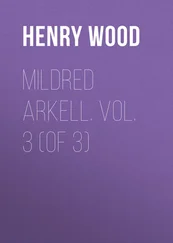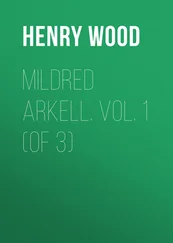Henry Wood - Trevlyn Hold
Здесь есть возможность читать онлайн «Henry Wood - Trevlyn Hold» — ознакомительный отрывок электронной книги совершенно бесплатно, а после прочтения отрывка купить полную версию. В некоторых случаях можно слушать аудио, скачать через торрент в формате fb2 и присутствует краткое содержание. Жанр: foreign_prose, literature_19, foreign_antique, на английском языке. Описание произведения, (предисловие) а так же отзывы посетителей доступны на портале библиотеки ЛибКат.
- Название:Trevlyn Hold
- Автор:
- Жанр:
- Год:неизвестен
- ISBN:нет данных
- Рейтинг книги:4 / 5. Голосов: 1
-
Избранное:Добавить в избранное
- Отзывы:
-
Ваша оценка:
- 80
- 1
- 2
- 3
- 4
- 5
Trevlyn Hold: краткое содержание, описание и аннотация
Предлагаем к чтению аннотацию, описание, краткое содержание или предисловие (зависит от того, что написал сам автор книги «Trevlyn Hold»). Если вы не нашли необходимую информацию о книге — напишите в комментариях, мы постараемся отыскать её.
Trevlyn Hold — читать онлайн ознакомительный отрывок
Ниже представлен текст книги, разбитый по страницам. Система сохранения места последней прочитанной страницы, позволяет с удобством читать онлайн бесплатно книгу «Trevlyn Hold», без необходимости каждый раз заново искать на чём Вы остановились. Поставьте закладку, и сможете в любой момент перейти на страницу, на которой закончили чтение.
Интервал:
Закладка:
"And I wish to tell Chattaway that if he'll act a fair part as a man ought, and let my wife and the boys stop on the farm, he'll stand a much better chance of getting the money, than he would if he turns them out of it. I don't say this for their sakes more than for his; but because from my heart I believe it to be the truth. George has his head on his shoulders the right way, and I would advise his mother to keep him on the farm; he will be getting older every day. Not but that I wish her to use her own judgment in all things, for her judgment is good. In time, they may be able to pay off Chattaway; in time they may be able even to buy back the farm, for I cannot forget that it belonged to my forefathers, and not to the Squire. That is, if Chattaway will be reasonable, and let them stop on it, and not be hard and pressing. But perhaps I am talking nonsense, for he may turn them off and do for them, as his bull has done for me.
"And now, my dear George and Treve, I repeat it to you, be good boys to your mother. Obey her in all things. Maude, I have left all to you in preference to dividing it between you and them, for which there is no time; but I know you'll do the right thing by them: and when it comes to your turn to leave—if Chattaway don't sell up—I wish you to bequeath to them in equal shares what you die possessed of. George is not your son, but he is mine, and–But perhaps I'd better not say what I was going to say. And, my boys, work while it's day. In that Book which I have not read so much as I ought to have read, it says, 'The night cometh when no man can work.' When we hear that read in church, or when we get the Book out on a Sunday evening and read it to ourselves, that night seems a long, long way off. It seems so far off that it can hardly ever be any concern of ours; and it is only when we are cut off suddenly that we find how very near it is. That night has come for me; and that night will come for you before you are aware of it. So, work —and score that, doctor. God has placed us in this world to work, and not to be ashamed of it; and to work for Him as well as for ourselves. It was often in my mind that I ought to work more for God—that I ought to think more of Him; and I used to say, 'I will do so when a bit of this bother's off my mind.' But the bother was always there, and I never did it. And now the end's come; and I can see things would have been made easier to me if I had done it—score it again, doctor—and I say it as a lesson to you, my children.
"And I think that's about all; and I am much obliged to you, doctor, for writing this. I hope they'll be able to manage things on the farm, and I would ask my neighbour Apperley to give them his advice now and then, for old friendship's sake, until George shall be older, and to put him in a way of buying and selling stock. If Chattaway don't sell up, that is. If he does, I hardly know how it will be. Perhaps God will put them in some other way, and take care of them. And I would leave my best thanks to Nora, for she has been a true friend to us all, and I don't know how the house would have got on without her. And now I'm growing faint, doctor, and I think the end is coming. God bless you all, my dear ones. Amen."
A deep silence fell on the room as Mr. King ceased. He folded the paper, and laid it on the table near Mrs. Ryle. The first to speak was Farmer Apperley.
"Any help that I can be of to you and George, Mrs. Ryle, and to all of you, is heartily at your service. It will be yours with right goodwill at all times and seasons. The more so, that you know if I had been cut off in this way, my poor friend Ryle would have been the first to offer to do as much for my wife and boys, and have thought no trouble of it. George, you can come over and ask me about things, just as you would ask your father; or send for me up here to the farm; and whatever work I may be at at home, though it was putting out a barn on fire, I'd come."
"And now it is my turn to speak," said Mr. Chattaway. "And, Mrs. Ryle, I give you my promise, in the presence of these gentlemen, that if you choose to remain on the farm, I will put no hindrance upon it. Your husband thought me hard—unjust; he said it before my face and behind my back. My opinion always has been that he entirely mistook Squire Trevlyn in that last interview he had with him. I do not think it was ever the Squire's intention to cancel the bond; Ryle must have misunderstood him altogether: at any rate, I heard nothing of it. As successor to the estate, the bond came into my possession; and in my wife and children's interest I could not consent to destroy it. No one but a soft-hearted man—and that's what Ryle was, poor fellow—would have thought of asking such a thing. But I was willing to give him every facility for paying it, and I did do so. No! It was not my hardness that was in fault, but his pride and nonsense, and his thinking I ought not to ask for my own money–"
"If you bring up these things, James Chattaway, I must answer them," interrupted Mrs. Ryle. "I would prefer not to be forced to do it to-day."
"I do not want to bring them up in any unpleasant spirit," answered Mr. Chattaway; "or to say it was his fault or my fault. We'll let bygones be bygones. He is gone, poor man; and I wish that savage beast of a bull had been in four quarters before he had done the mischief! All I would now say, is, that I'll put no impediment to your remaining on the farm. We will not go into business details this afternoon, but I will come in any day you like to appoint, and talk it over. If you choose to keep on the farm at its present rent—it is well worth it—to pay me interest for the money owing, and a yearly sum towards diminishing the debt, you are welcome to do it."
Just what Nora had predicted! Mr. Chattaway loved money far too much to run the risk of losing part of the debt—as he probably would do if he turned them from the farm. Mrs. Ryle bowed her head in cold acquiescence. She saw no way open to her but that of accepting the offer. Mr. Chattaway probably knew there was no other.
"The sooner things are settled, the better," she remarked. "I will name eleven o'clock to-morrow morning."
"Very good; I'll be here," he answered. "And I am glad it is decided amicably."
The rest of those present also appeared glad. Perhaps they had feared some unpleasant recrimination might take place between Mrs. Ryle and James Chattaway. Thus relieved, they unbent a little, and crossed their legs as if inclined to become more sociable.
"What shall you do with the boys, Mrs. Ryle?" suddenly asked Farmer Apperley.
"Treve, of course, will go to school as usual," she replied. "George–I have not decided about George."
"Shall I have to leave school?" cried George, looking up with a start.
"Of course you will," said Mrs. Ryle.
"But what will become of my Latin; my studies altogether?" returned George, in tones of dismay. "You know, mamma–"
"It cannot be helped, George," she interrupted, speaking in the uncompromising, decisive manner, so characteristic of her; as it was of her sister, Diana Trevlyn. "You must turn your attention to something more profitable than schooling, now."
"If a boy of fifteen has not had schooling enough, I'd like to know when he has had it?" interposed Farmer Apperley, who neither understood nor approved of the strides education and intellect had made since he was a boy. Substantial people in his day had been content to learn to read and write and cipher, and deem that amount of learning sufficient to grow rich upon. As did the Dutch professor, to whom George Primrose wished to teach Greek, but who declined the offer. He had never learned Greek; he had lived, and ate, and slept without Greek; and therefore he did not see any good in Greek. Thus was it with Farmer Apperley.
"What do you learn at school, George?" questioned Mr. Berkeley.
Читать дальшеИнтервал:
Закладка:
Похожие книги на «Trevlyn Hold»
Представляем Вашему вниманию похожие книги на «Trevlyn Hold» списком для выбора. Мы отобрали схожую по названию и смыслу литературу в надежде предоставить читателям больше вариантов отыскать новые, интересные, ещё непрочитанные произведения.
Обсуждение, отзывы о книге «Trevlyn Hold» и просто собственные мнения читателей. Оставьте ваши комментарии, напишите, что Вы думаете о произведении, его смысле или главных героях. Укажите что конкретно понравилось, а что нет, и почему Вы так считаете.












